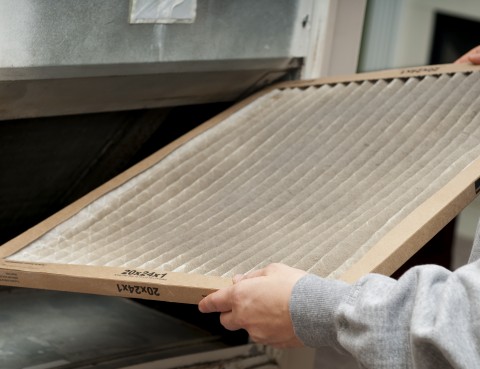A recent study by the American Society of Heating, Refrigeration and Air Conditioning Engineers showed that dirty HVAC filters can reduce efficiencies by more than 10%!
Did you know you should be replacing your unit’s HVAC filter once a month? HVAC filters play a significant role in maintaining efficiency as well as the maintenance of indoor air quality. The air system will be overworked (and therefore need to be replaced quicker) with a consistently dirty HVAC filter. But with so many options available, how do you choose a HVAC filter?
First, you need to understand the measurement of effectiveness of an air filter, known as the MERV rating. Inefficient filters have low MERV ratings, while more efficient filters have high MERV ratings. The scale is 1-16.
How Do You Choose A HVAC Filter?
Fiberglass-Typically, fiberglass filters have a MERV rating between 1-4 and are not the best option when choosing a filter. They are thin and are best for protecting your unit, not necessarily improving air quality.
Washable-Most technicians will agree that these are not the best choice, either. With a MERV rating similar to that of a fiberglass filter (between 1-4), they require extensive maintenance and can collect bacteria and fungus. This bacteria and fungus is then spread throughout your home.
Polyester/Pleated-These are usually a better option, with a MERV rating between 8-13. Polyester or pleated filters remove approximately 45% of air pollutants and have superior dust-trapping ability.
High-Efficiency-These have a high MERV rating of 14-16 and can remove 85% of air pollutants. High-efficiency filters can trap very small pollutant particles and even remove bacteria from the air.
When choosing an HVAC filter for your home, keep in mind that the best option will remove the greatest number of air contaminants with the least effect on airflow. Filters with a MERV rating of 9-12 are usually ideal for homeowners. For any other air conditioning questions or service, call D&D! Our first priority is your overall satisfaction.



